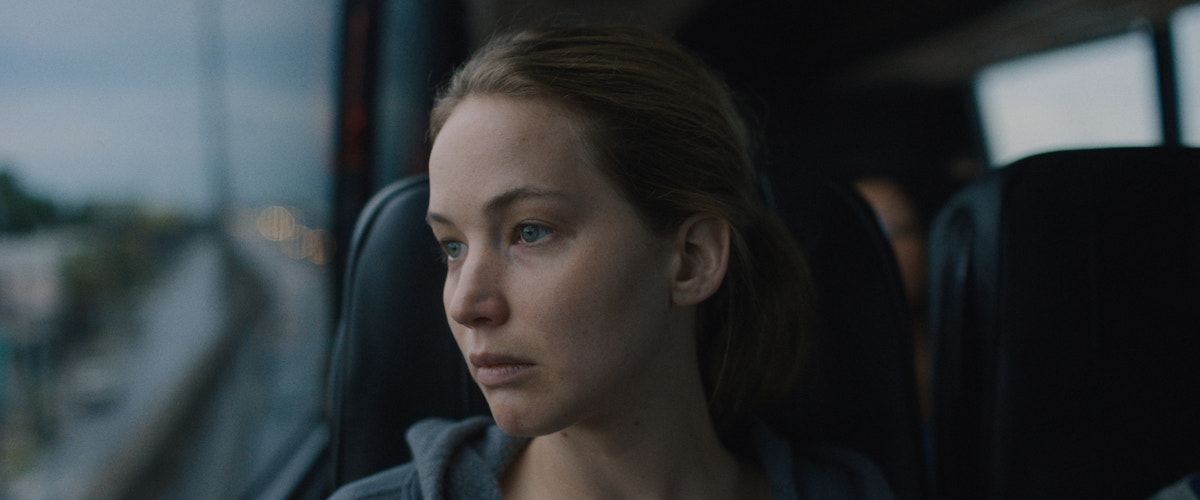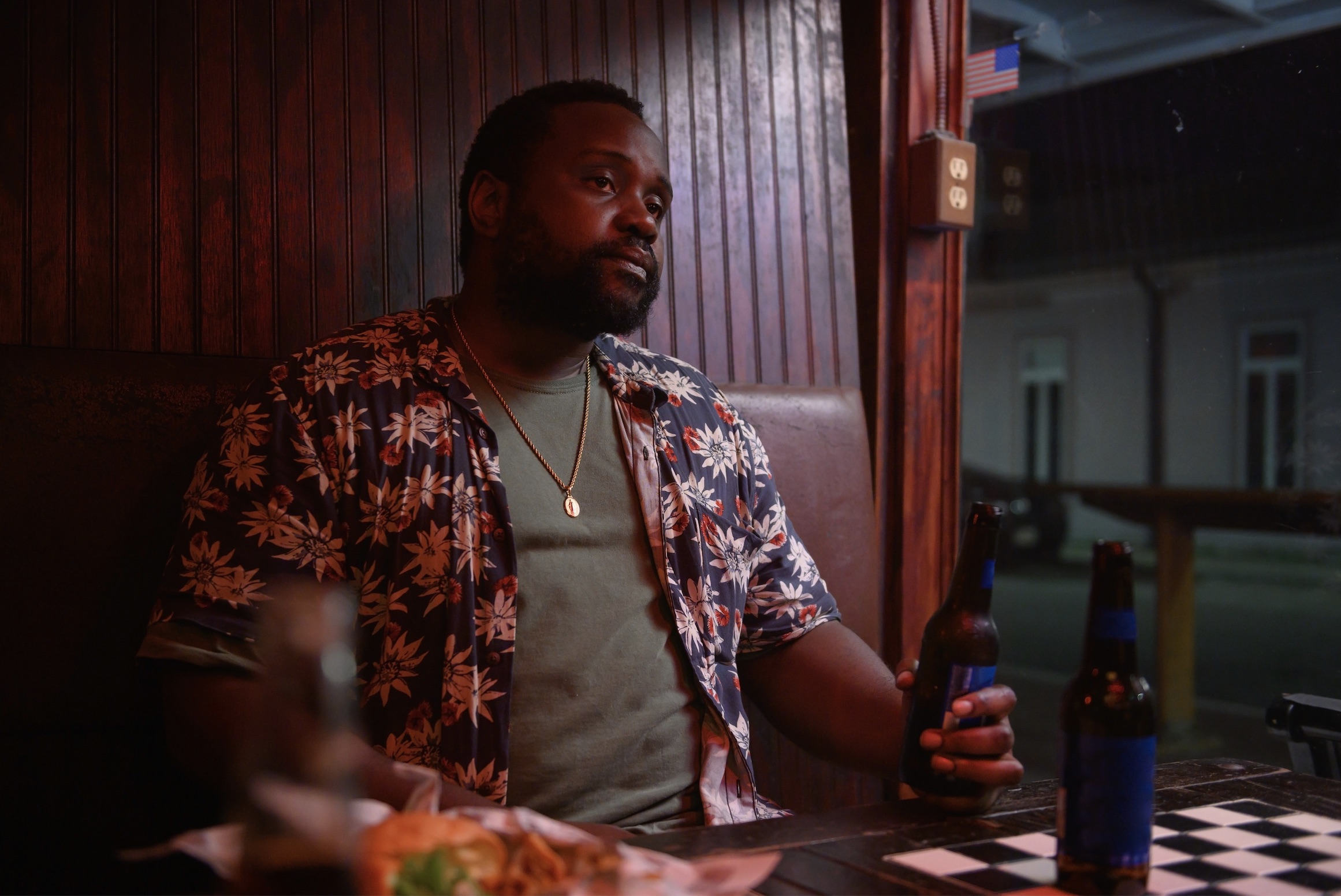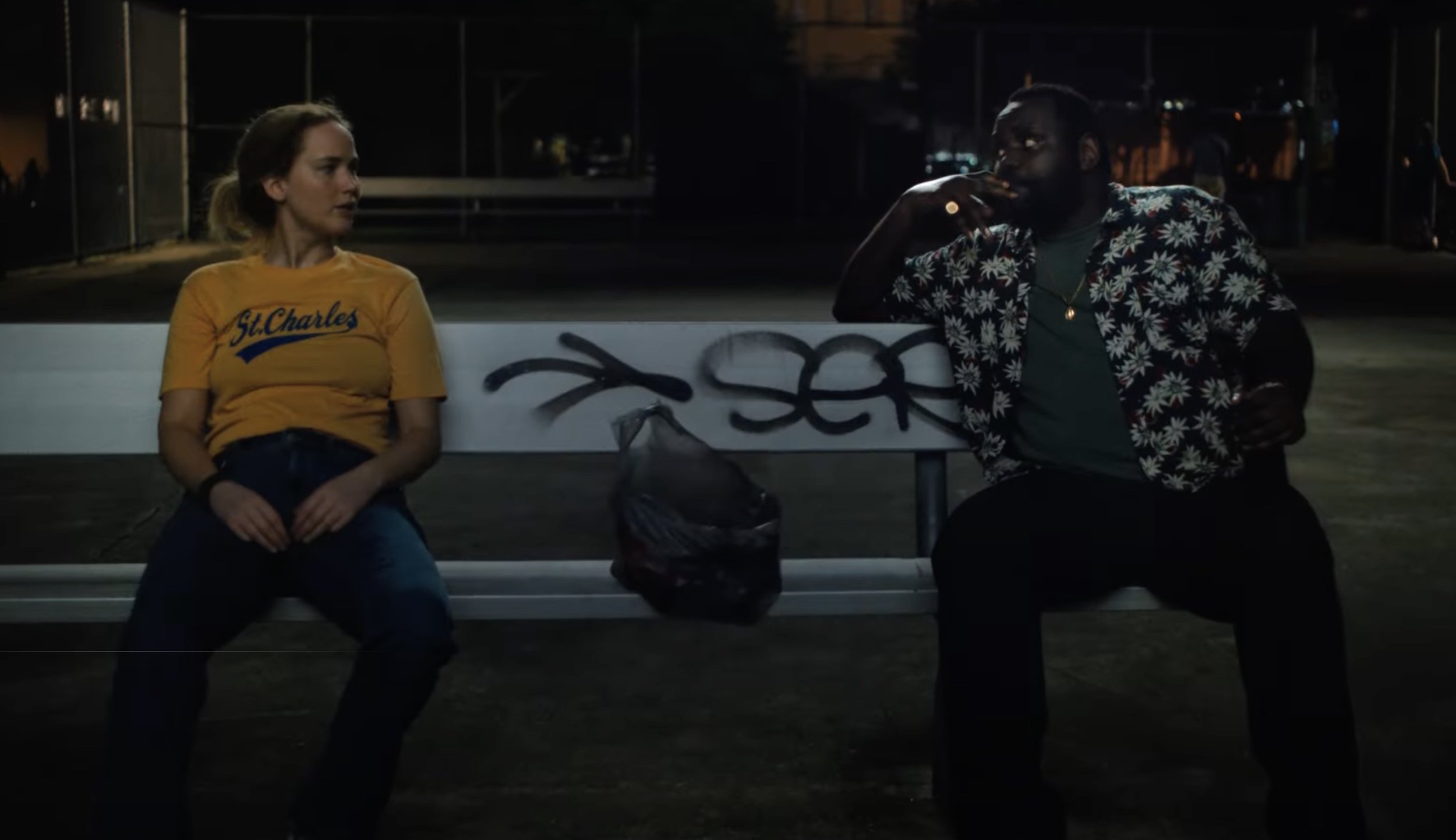Jennifer Lawrence’s character in Causeway is recovering from battlefield trauma, but in a way, so is Jennifer Lawrence. It’s obviously not the same for a once-popular Oscar-winning actress and a soldier whose Humvee drove over an IED, but Lawrence is, in her way, making her way back to old routines after a period of disruption. The time when she could do no wrong transitioned rapidly, and with insufficient explanation, into the sort of persona non grata status that has seen her largely absent from the movies the past few years. A flop here and the release of some naked photos there, combined with the mood swings of a fickle public, left her scratching her head about where it all went.
For Brian Tyree Henry, who was first introduced to us on Atlanta, he hasn’t had to leave the public eye to wander from the path that first brought him acclaim. He wasn’t down and out in any identifiable way, unless you were disappointed that he chose to ply his skills on Godzilla sequels and Melissa McCarthy movies. In Causeway, his character is also recovering from trauma, namely, the loss of a leg and the loss of a family member in a car accident in which he was the driver.
Causeway resuscitates both careers in invigorating ways, while never exceeding the modest ambitions of a solid indie drama. It’s a prime example of the notion that a well-made independent film has a high floor but a comparatively low ceiling. Lila Neugebauer’s film isn’t going to change anyone’s life, but its depiction of a bond between lonely people shut off from their normal support structures is the sort of sturdy contemplation that restores our collective faith in observant writing and strong acting. And maybe if you see yourself in Lynsey or James, it could change your life after all.
When Lynsey first returns from Afghanistan after the roadside incident that left her with a brain injury, simple tasks are a challenge. When asked to hold her arms to the side and touch her nose, she lands on her chin. She’s teaching her body how to walk again and she will drop objects out of nowhere. Despite all this, she’s eager to redeploy, as the army is the only place she feels at home. New Orleans certainly doesn’t feel like home, and after escaping she thought she’d never have to come back here.
When her pickup truck breaks down in the course of her duty cleaning pools, she brings it to a mechanic, James. James senses something might be off with Lynsey when he asks for her phone number to give her repair updates, and Lynsey says she doesn’t know it – and then can’t think of a way to determine what it might be. Because his own left leg is missing from the knee down, though, he senses a possible kindred spirit – and the two begin hanging out. A relationship that could turn romantic mostly avoids those complications when Lynsey explains she’s gay.
In keeping with our expectations for indie drama, screenwriters Ottessa Moshfegh, Luke Goebel and Elizabeth Sanders don’t give us a lot of plot beyond the basic development of this relationship and the personal details they share that help round out who these people are. Causeway doesn’t need it. Lawrence and Henry are doing such impeccable work that just watching them steadily reveal themselves almost feels like a spectator sport. These are the scaled-back, world-weary, interior versions of Lawrence we saw in Winter’s Bone and Henry we saw in If Beale Street Could Talk. That doesn’t mean they can’t laugh on occasion, and some of Causeway’s best unexpected surprises are its moments of light humour.
Movies in which characters are recovering from trauma sound like a bit of a drag, especially when we as a society are still recovering from the collective trauma of the pandemic, and have demonstrably been more interested in escaping from it through Top Gun sequels than investigating it head on. These are where the internalised performances of Lawrence and Henry really benefit the movie. Neugebauer modulates her leads’ acting instincts so they never go for anything showy. If there is something that threatens the characters’ bond – and since movies rely on conflict, you know there has to be – then the larger performances in those moments have to do more with anger at each other than misery over what’s brought them to this moment in their lives. Anger is a far better emotional release than mopiness, in a movie of this sort.
Just because Causeway has familiar aspects doesn’t make it a cinch to telegraph. There’s a scene in the last third of the movie involving Lynsey and a character we haven’t met to this point, and it too is sort of a trope from a number of different genres. However, there’s an element to it that is totally unexpected based on what we’ve learned about this character, that gives it a real emotional potency – just the sort of thing that helps boost an already affecting film as it approaches the finish line.
Just like all the movies about trauma that came before it, Causeway doesn’t “solve” trauma – because that’s an impossible task. It’s about as good as any recent movie, though, at helping us face up to it, learn to live with it, and identify people in our lives who might help get us where we need to go.
Causeway is currently streaming on AppleTV+.


